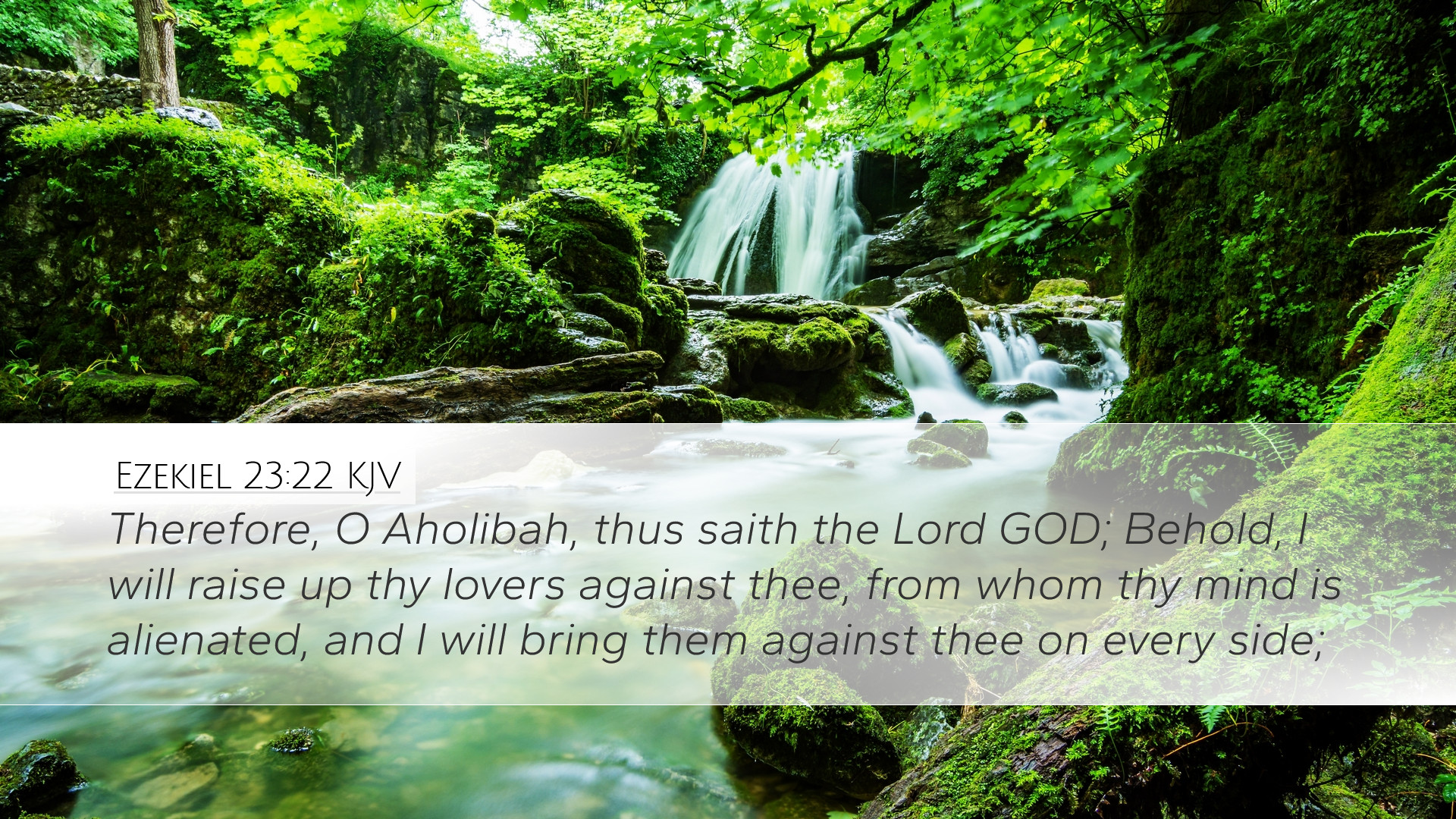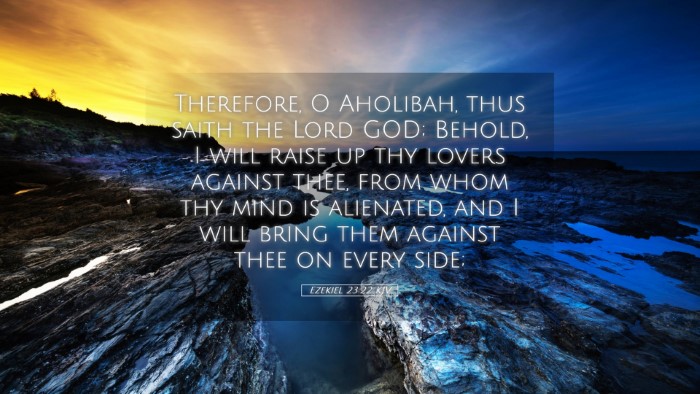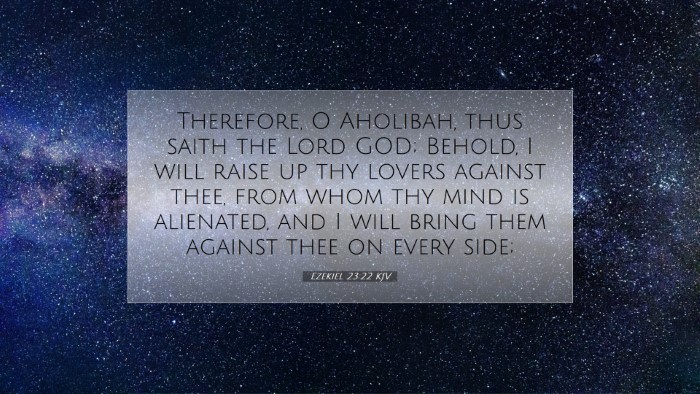Bible Commentary on Ezekiel 23:22
Ezekiel 23:22: "Therefore, O Aholibah, thus says the Lord God: Behold, I will stir up your lovers against you, from whom you have been alienated, and I will bring them against you from every side."
Contextual Overview
Ezekiel's prophecy uses the metaphor of two sisters, Oholah and Oholibah, representing the northern and southern kingdoms of Israel, respectively. This chapter outlines the unfaithfulness of Israel to God, illustrating their idolatry and reliance on foreign powers. The call for judgment in 23:22 emphasizes divine response to spiritual infidelity.
Exegesis and Interpretation
According to Matthew Henry, the mention of Aholibah symbolizes Jerusalem and the southern kingdom, emphasizing the severity of their actions. The verse serves as a transition to the spiritual and moral decline of Israel and highlights God's response to their betrayal.
Albert Barnes notes that God's stirring up of lovers signifies the coming of Babylon and other nations that previously enticed Israel away from their covenant. This is not merely a physical assault; it illustrates spiritual consequence—the enemies they sought for alliances now become their oppressors.
Theological Implications
- God's Justice: The stirring up of enemies is seen as a direct act of God's justice against sin. Adam Clarke comments that divine retribution is often enacted through the very means that nations seek for security, which shows the irony in their attempts to avoid God's protection.
- The Sovereignty of God: This verse underscores the sovereignty of God in governance and history. Even when Israel turns to other nations, it is God who ultimately orchestrates events, bringing Israel back to accountability.
- Call to Repentance: While this verse warns of judgment, it also serves as a call to repentance. Matthew Henry encourages readers to recognize their own spiritual unfaithfulness and to seek restoration with God.
Characterization of Aholibah
The name Aholibah can be translated to mean "My tent is in her," indicating a closeness between God and Jerusalem. This proximity underscores the tragedy of her unfaithfulness. Adam Clarke elaborates on this idea, stating that despite God's intimate relationship, her actions lead to alienation from divine promises.
Insight into Divine Relationships
This passage prompts reflection on the nature of divine-human relationships. Just as Israel turned from God, modern readers are invited to consider their own fidelity to divine commandments.
God's Response to Unfaithfulness
In this verse, God's proactive stance in "stirring up" Aholibah's lovers emphasizes that unfaithfulness elicits a proportionate divine response. Albert Barnes indicates that the judgment comes from a place of deep anguish over betrayal, reinforcing the seriousness of infidelity—both physical and spiritual.
The Role of Foreign Alliances
The reference to 'lovers' symbolizes not only political alliances but also spiritual infidelity through idolatry. Matthew Henry poignantly notes that what was intended for security turns to be the source of their demise. Israel’s pursuit of earthly pleasures leads to divine judgment.
Conclusion
In Ezekiel 23:22, we witness the gravity of sin and its consequences on both personal and corporate levels. The passage serves as a timeless reminder of the dangers posed by abandoning God for transient affiliations. The insights provided by public domain commentaries, such as those from Matthew Henry, Albert Barnes, and Adam Clarke, enrich the understanding of this verse, guiding pastors, students, theologians, and Bible scholars toward deeper reflection on the nature of God, judgment, and the importance of faithfulness.


